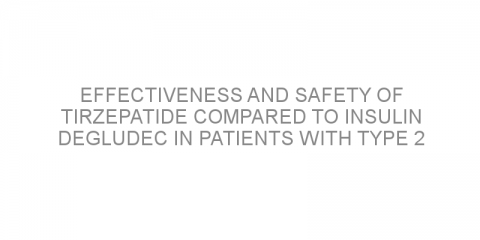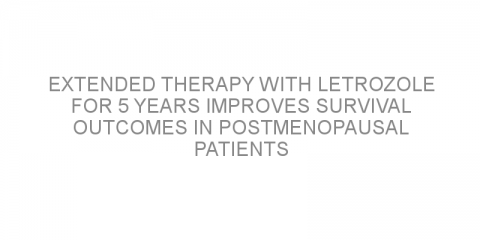In a nutshell This study aimed to evaluate brentuximab vedotin (BV; Adcedris) and bendamustine (Treanda) treatment in pediatric patients with relapsed/refractory (r/r) Hodgkin Lymphoma (HL). This study concluded that this treatment combination was safe and effective in these patients. Some background HL is a common cancer...
Read MoreEvaluating the long-term benefits and risks of trastuzumab plus chemotherapy in patients with early-stage HER2+ breast cancer.
In a nutshell This study evaluated the long-term benefits and risks of trastuzumab (Herceptin) plus chemotherapy in patients with early-stage HER2-positive (+) breast cancer (BC). The data showed that trastuzumab added to chemotherapy reduced the risk of BC recurrence and death for these patients. Some background BC is classified into different...
Read MoreEvaluating the effectiveness and safety of apalutamide plus abiraterone and prednisone for the treatment of patients with metastatic castration-resistant prostate cancer.
In a nutshell This study evaluated the effectiveness and safety of apalutamide (Erleada) in combination with abiraterone acetate (Zytiga) plus prednisone (Deltasone) (AAP) for the treatment of patients with metastatic castration-resistant prostate cancer (mCRPC). The data showed that apalutamide plus AAP combination significantly improved...
Read MoreReviewing the benefits of gemtuzumab ozogamicin in different patients with acute myeloid leukemia
In a nutshell This review aimed to explore the effectiveness and safety of gemtuzumab ozogamicin (GO; Mylotarg) in different subtypes of acute myeloid leukemia (AML). This review concluded that this treatment is safe and effective in certain patients with AML. Some background GO is an...
Read MoreEvaluating anti-CD25 radioimmunotherapy with BEAM autologous stem cell transplantation in patients with high-risk relapsed or refractory classical Hodgkin lymphoma
In a nutshell The authors compared the safety and effectiveness of 90Y-antiCD25 (yttrium 90 basiliximab; aTac) radioimmunotherapy (RAI), followed by BEAM (carmustine, etoposide, cytarabine, melphalan) and autologous stem cell transplantation (ASCT) for the treatment of patients with high-risk relapsed or refractory (r/r) classical Hodgkin...
Read MoreEffectiveness and safety of tirzepatide compared to insulin degludec in patients with type 2 diabetes.
In a nutshell This study compared the effectiveness and safety of tirzepatide to insulin degludec (Tresiba) in patients with uncontrolled type 2 diabetes (T2D). The data showed that tirzepatide produced better blood glucose control and body weight improvements with reduced risk of hypoglycemia, compared to degludec in these patients. Some...
Read MoreEvaluating the clinical outcomes in patients with relapsed or refractory classical Hodgkin lymphoma after first-line treatment.
In a nutshell This study evaluated the characteristics, treatment patterns, and outcomes of patients with relapsed or refractory (r/r) classical Hodgkin lymphoma (HL) after treatment with first-line therapy. Some background HL is a cancer of white blood cells. Most patients with HL respond to first-line chemotherapy regimens. However, up to...
Read MoreWhich type of CAR T cell therapy is best for patients with relapsed or refractory large B cell lymphoma?
In a nutshell The authors compared the safety and effectiveness of lisocabtagene maraleucel (liso-cel; Breyanzi) and axicabtagene ciloleucel (axi-cel; Yescarta) in patients with relapsed or refractory (r/r) large B cell lymphoma (LBCL). The study found that both treatments were similarly effective but liso-cel was better tolerated in these...
Read MoreHow high should blood pressure be to reduce cardiovascular risks?
In a nutshell This study evaluated the optimal targets of blood pressure (BP) in older patients. It found that lowering systolic BP (SBP; BP when the heart beats) to 110-130 mmHg resulted in a lower risk of heart attack, stroke, or death compared to maintaining an SBP of 130-150 mmHg. Some background High blood pressure is a...
Read MoreComparing pessaries and disposable continence devices for managing stress incontinence
In a nutshell This study compared two treatments for stress urinary incontinence (SUI), continence pessaries (CP) and disposable intravaginal continence devices (DICD). It found that both treatments reduced symptoms of stress incontinence after 4 weeks in 75-80% of patients. Some background SUI is a condition that commonly affects women...
Read MoreExtended therapy with letrozole for 5 years improves survival outcomes in postmenopausal patients with hormone positive early-stage breast cancer.
In a nutshell This study compared the effectiveness and safety of extended therapy with letrozole (LET; Femara) for 5 years versus the standard therapy of 2-3 years for the treatment of postmenopausal women with early-stage breast cancer (BC). The data showed that extended treatment with LET for 5 years significantly improved the survival outcomes...
Read MoreEvaluating the effectiveness and safety of capecitabine maintenance versus active monitoring for the treatment of patients with metastatic colorectal cancer.
In a nutshell This study investigated the effectiveness and safety of capecitabine (Xeloda) as maintenance therapy versus active monitoring for the treatment of patients with stable metastatic colorectal cancer (mCRC). The data showed that capecitabine maintenance improved survival without cancer worsening with manageable side effects for these...
Read More














